OSB product guide
APA The Engineered Wood Association
Learn MoreThe fabrication, uses, performance and sustainability of oriented strand board (OSB).
OSB is a widely used, versatile engineered wood panel made using waterproof heat-cured adhesives and rectangularly shaped wood strands that are arranged in cross-oriented layers. It is similar in strength and performance as plywood, resisting deflection, warping and distortion.
OSB is made from wood strands 8 to 15 centimetres long. It uses the whole tree and makes use of crooked, knotty and deformed trees that would otherwise go unused. In British Columbia (B.C.), OSB is made from abundant, small diameter poplar and aspen trees. As strands, they are mixed with waterproof resin and interleaved together in thick mats, which are then bonded together under heat and pressure. B.C. manufacturers use a variety of different fabrication processes to deliver a spectrum of OSB products. The result is solid, uniform building panels, with enhanced features, and high strength and water resistance.
In Canada, OSB panels are manufactured to meet the requirements of the Canadian Standards Association. This standard sets performance ratings (grades) for specific end uses such as floor, roof and wall sheathing in light-frame wood construction. In addition, design values for OSB construction sheathing are listed in CSA O86, allowing for engineering design of roof sheathing, wall sheathing and floor sheathing using OSB conforming to CSA O325.
Photo credit: Michael Bednar
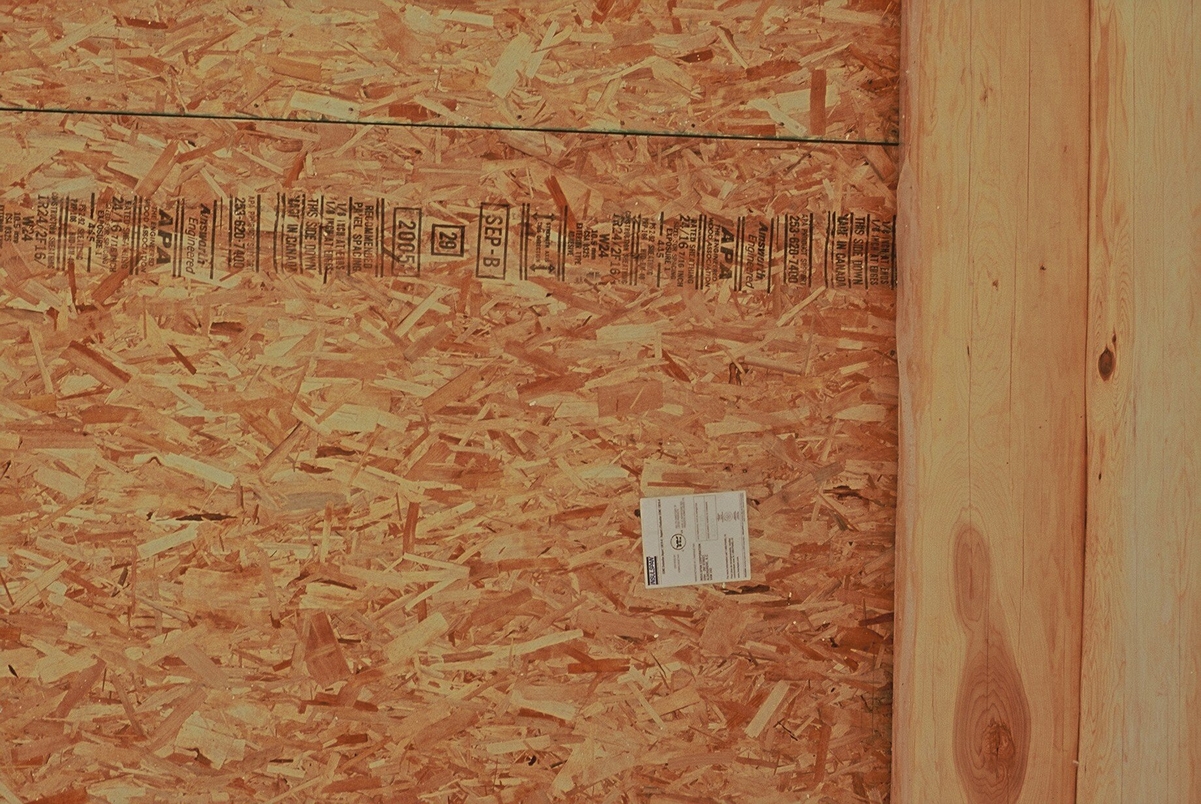
British Columbia’s forests are vast and diverse. There are more than forty species of native trees in the province. Discover 16 of the most widely used for everything from single–family homes to tall timber towers.
Photo credit: Nik West
B.C. manufacturers produce a range of OSB products for structure and non-structural uses. As a lightweight, strong and versatile wood product it can be used for roof, wall and floor sheathing. It is also sometimes used as the web material for prefabricated I-joists and a skin material for structural insulated panels. As a strong, stable panel it generally won’t warp and will resist wind and seismic loads. Other uses of B.C.-made OSB include RV fabrication and cargo-van panels, pallets, industrial containers, marine applications and furniture manufacturing.
Photo credit: KK Law
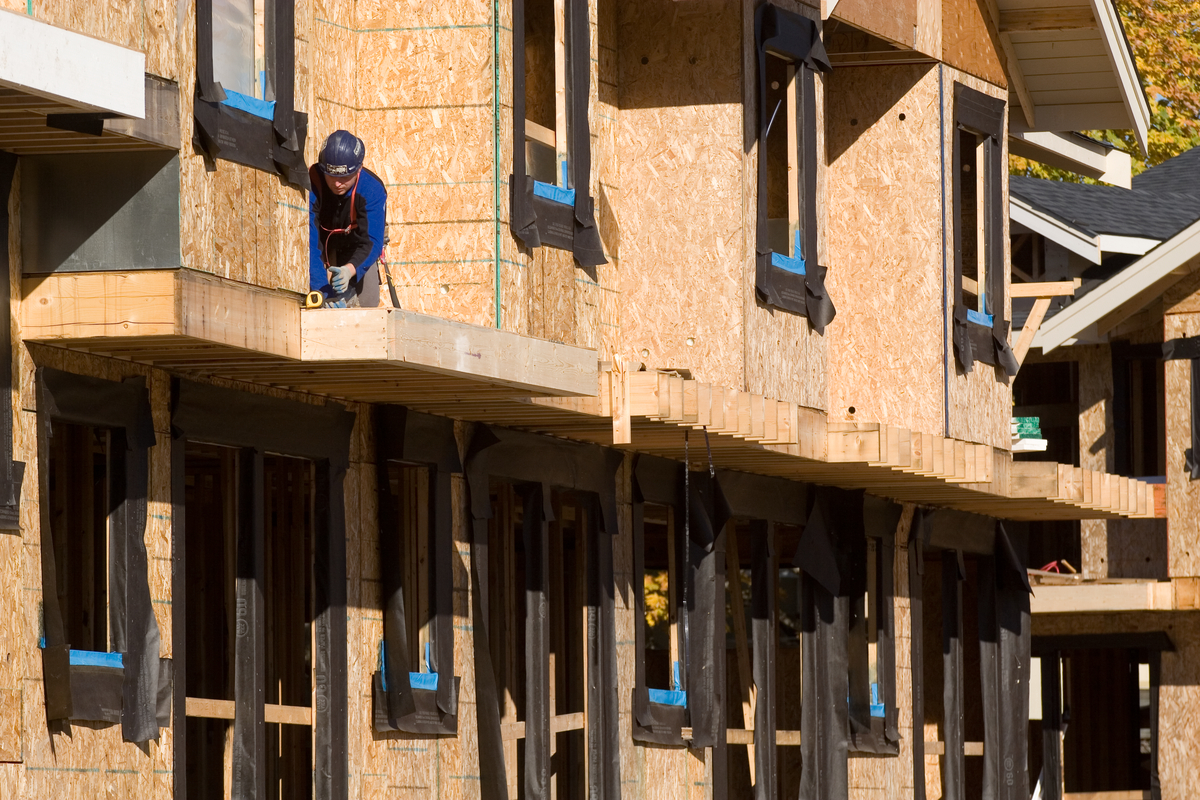
OSB can be chemically treated to improve resistance to decay or to fire. It is water-resistant when treated correctly with resins.
OSB manufacturers must test their products to determine the effects of fire retardants or any other chemicals.
Photo credit: Rob Salmon Photography
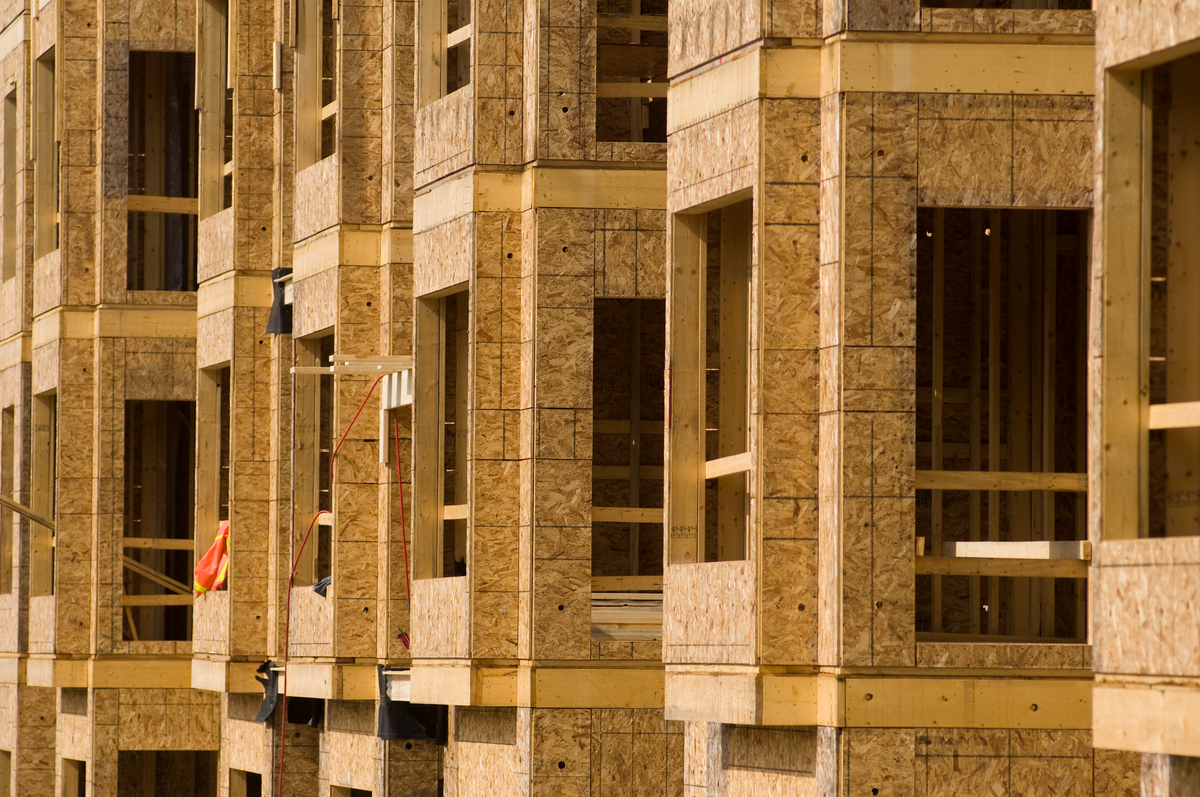
Similar to plywood, OSB is often a go-to product and preferred for its many common uses. OSB can be fabricated into panel that are larger than plywood. Compared to plywood, OSB is heavier and swells more when wet, especially at panel edges, retaining water longer than plywood. Regardless of their differences, OSB and plywood are comparable products fabricated to meet the same standards of strength and structural performance. Nonetheless OSB provides exceptional light-weight strength and durability.
Photo credit: KK Law
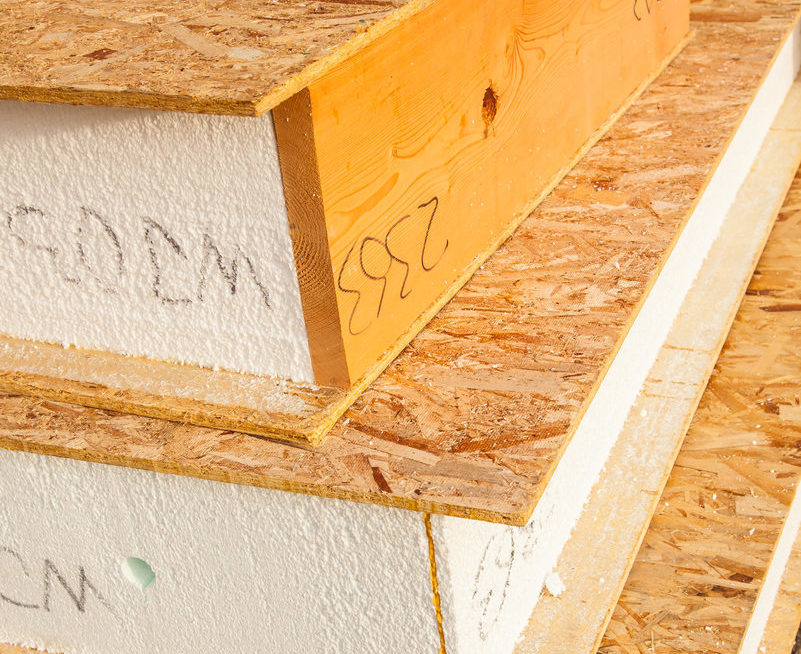
With the province of British Columbia recognized as a global leader in sustainable forest management, you can specify BC forest products with confidence. Connect with suppliers of OSB today.
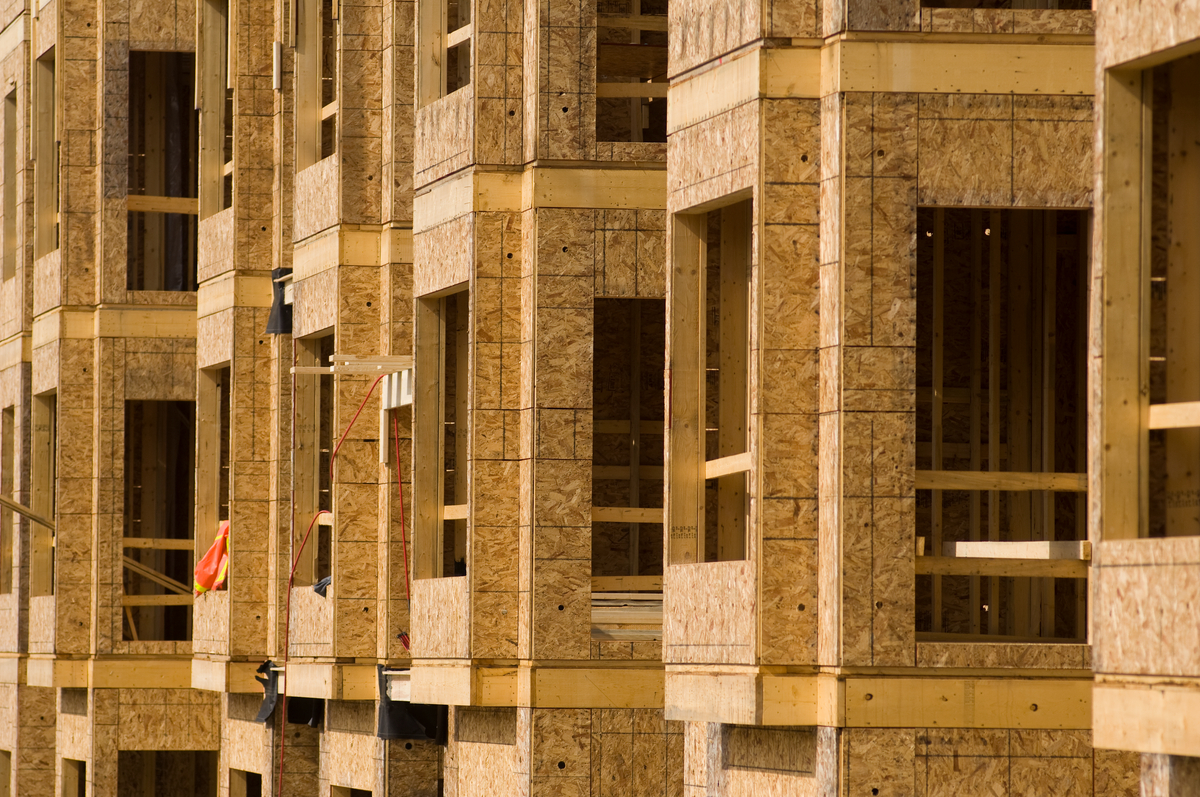

Subscribe for the latest wood projects, developments, tools and research.